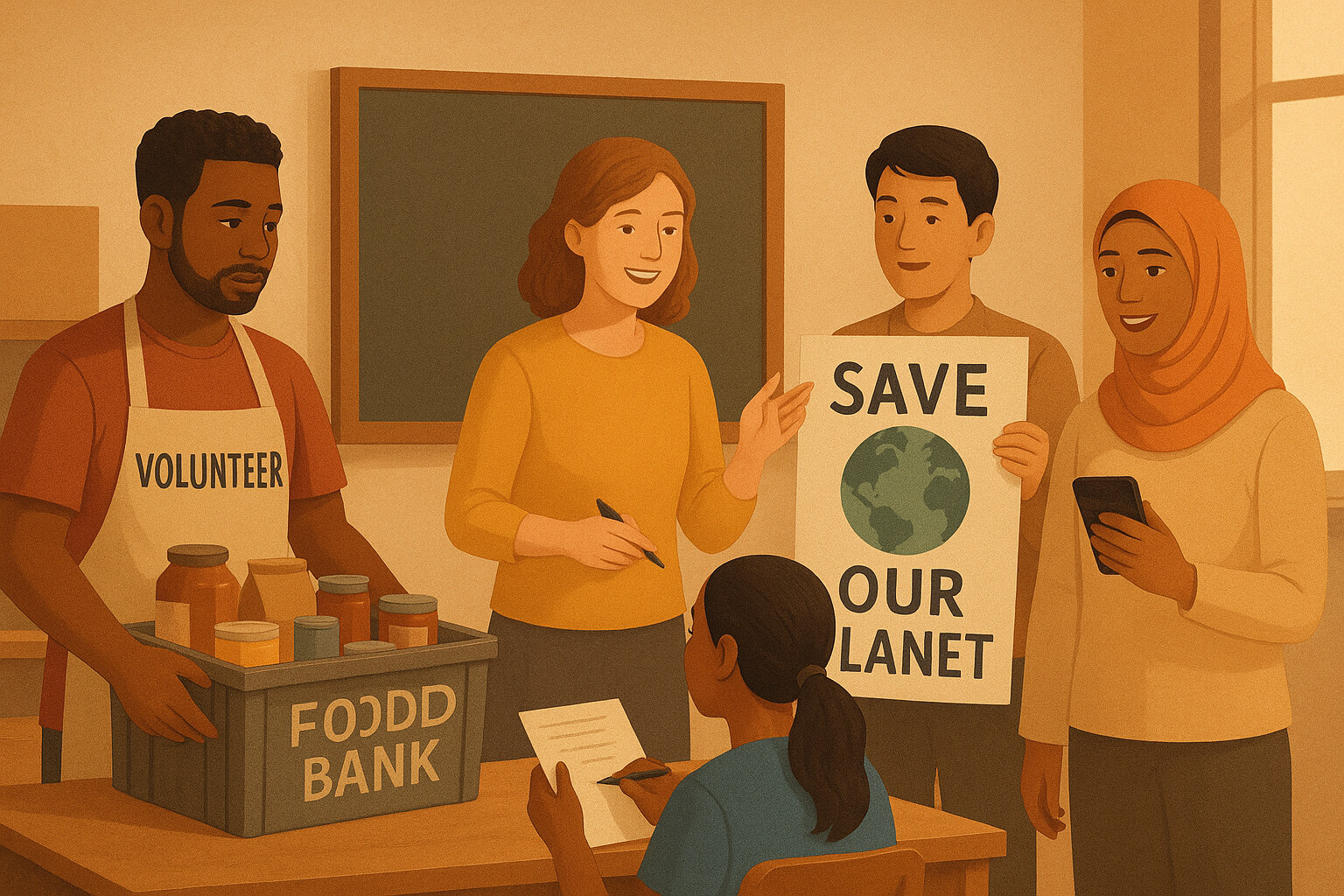September 04, 2025

When most people think about supporting a cause, the first thing that comes to mind is making a donation. And while financial contributions are crucial for sustaining programs and operations, they're not the only way to make a meaningful difference. Many people—especially in financially tight times—may not be in a position to give money, but that doesn’t mean they lack the power to create change.
In reality, time, skills, connections, and everyday actions can be just as powerful—sometimes even more so—in advancing a cause. Let’s explore the many ways individuals can make an impact without opening their wallets.
Volunteering is one of the most direct and powerful forms of support. Whether you're helping at a local food bank, tutoring children, planting a community garden, or staffing a helpline, your physical presence and energy have measurable impact.
Even one hour a week can make a difference when it’s part of a broader community effort.
Non-profits often struggle with gaps in areas like technology, communications, finance, or design. If you’re a writer, accountant, web developer, project manager, or marketing professional, your existing skills can be game-changers for small or under-resourced organizations.
This type of skilled volunteering—sometimes called “skills-based volunteering”—often has a multiplier effect. Instead of helping one person at a time, you're strengthening the systems that help many.
You don’t need a political platform or a massive social media following to be an advocate. Advocacy starts with raising awareness, sharing information, and using your voice to support causes you believe in.
Topics like mental health awareness (Understanding Mental Health: Breaking the Stigma) and racial or gender equity often need consistent, informed, and compassionate voices in public discourse.
According to Nonprofit Quarterly, advocacy plays a key role in shifting policy, protecting rights, and ensuring long-term change. Change starts with conversation.
Money isn’t the only thing non-profits need. Donating useful items or in-kind services can provide essential support, especially in resource-scarce environments.
Before donating, always check an organization’s website or call to see what’s needed. Many have wish lists or seasonal drives (e.g., backpacks in August, coats in winter).
Sometimes, supporting a cause means strengthening the fabric of your own community. You can do this by organizing or participating in local sustainability efforts, neighborhood initiatives, or mutual aid networks.
These efforts don’t always have a clear fundraising goal, but they build social trust, local pride, and resilience, which are essential for long-term community health.
One of the most valuable gifts you can offer is knowledge and guidance. By mentoring youth, teaching new skills, or simply being a consistent presence in someone’s life, you can create ripple effects that last for generations.
Mentorship connects deeply with the idea that empowerment fuels change. It’s not about providing for someone—it’s about helping them build capacity and confidence to pursue their goals.
Sometimes, the best way to support a cause is to become the cause’s ambassador in your own sphere of influence. Starting something small in your neighborhood, workplace, or school can grow into something meaningful.
You don’t need to be a non-profit leader to lead change. Sometimes, grassroots actions—done consistently—are the most impactful of all.
Supporting a cause doesn’t require wealth, fame, or a large platform. What it requires is intentionality, compassion, and follow-through. Every act—whether it's mentoring a child, sharing a petition, or donating a coat—contributes to a broader culture of care.
The next time you wonder, “How can I help if I can’t donate?”, remember this:
You are not powerless. You are powerful in ways that money cannot measure.
When people come together with different strengths, they create collective impact—one action, one voice, and one community at a time.
Stay up to date with the latest tips, expert insights, product reviews, and step-by-step guides to help you grow, create, and succeed—no matter your industry or passion.